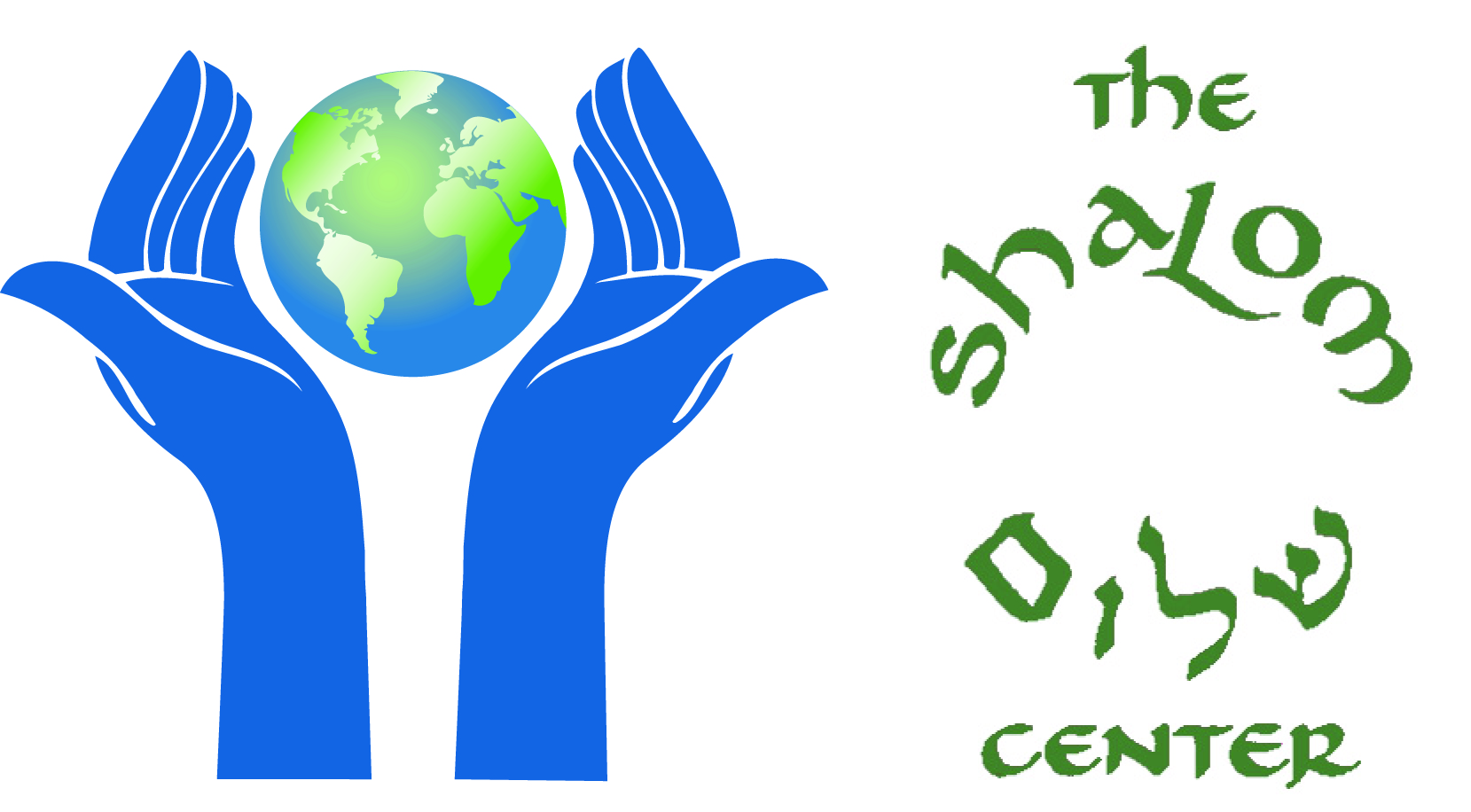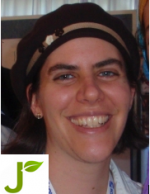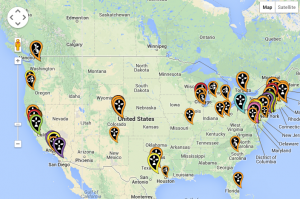Holidays Subscribe
A selection of initiatives, blogs, resources and communities on Jewcology which focus on Jewish holidays.
From the Blogs
Transformative Judaism and our Planetary Crisis
Since human action has endangered the web of life on earth, human action can heal it. And the religious and spiritual communities of our planet have the wisdoms and the tools to do the healing. Judaism is especially relevant because, unlike most world religions, we preserve the teachings of an indigenous people in the biblical tradition –- the spiritual wisdom of shepherds and farmers. And yet as a world people, we can now apply the earthiness of our origins to the Whole Earth. That does not mean simply repeating the ancient practices. For instance, ...
The Urban Adamah Fellowship Now Accepting 2014 Applications
Connect to Something Bigger: Earth, Community, Social Justice, Jewish Spirituality The Urban Adamah Fellowship, based in Berkeley, CA, is a three-month residential training program for young adults (ages 21–31) that combines urban organic farming, social justice training and progressive Jewish learning and living within the setting of an intentional community. Through the operation of Urban Adamah’s one-acre organic farm and internships with social justice organizations, fellows gain significant skills, training and experience in all aspects of ...
Sustainable Sukkot: Harvest Wind & Sun, Not Carbon
Traditionally the first action Jews would take after breaking the fast of Yom Kippur was to act for change – to hammer the first nail toward building a sukkah, the fragile hut with a leafy, leaky roof that is the central symbol of Sukkot, the harvest festival. That fragile hut is a calling to live lightly on the Earth, so beginning to build it is a commitment to compassion for all life-forms as well as for all human beings. So in this letter I want to share a possible “template” about Sukkot. I am hoping we can at this point reach out to ...
The Meaning of This Hour: Confronting the Coming Cataclysm of Global Climate Change
In March 1938, Abraham Joshua Heschel delivered a speech to a conference of Quakers in Frankfort (it was later expanded and published in 1943) called The Meaning of this Hour. Heschel had been living in Berlin for some years, acquiring his Ph.D. and a liberal rabbinic ordination (he had already gotten a traditional ordination when he was a teenager in Warsaw). During his years there, he was a witness to rise of Nazism even while he taught and began to publish his work. In 1938, it was clear to many people that war in Europe was coming. In the very month that ...
Life is like a Silverware Box? A Wish for the New Year
In the month after my mother died, I suddenly looked around at my house and saw certain things that were just unacceptable to me. Things that I felt my mother was being polite about. She rarely judged things in my house; she had come to the conclusion that I had to learn to live my own life. But after she was gone, I found I could no longer live with certain things. I suddenly found my silverware box unbearable. It was the blue felt piece that it came in originally, the one that basically wrapped the silverware in a blue snuggy, with slots for the ...
Sukkot, Simchat Torah, and Vegetarianism
There are many connections that can be made between vegetarianism and the joyous Jewish festivals of Sukkot, Shemini Atzeret (the Eighth Day of Solemn Assembly), and Simchat Torah: 1. Sukkot commemorates the 40 years when the ancient Israelites lived in the wilderness in frail huts and were sustained by manna. According to Isaac Arama (1420-1494), author of Akedat Yitzchak, and others, the manna was God's attempt to reestablish for the Israelites the vegetarian diet (Genesis 1:29) that prevailed before the flood, in the time ...
Yom Kippur and Vegetarianism
There are many connections that can be made between the Jewish holiday of Yom Kippur and vegetarianism: 1. On Yom Kippur, Jews pray to the "Living God", the "King Who delights in life," that they should be remembered for life, and inscribed in the "Book of Life" for the New Year. Yet, typical animal-based diets have been linked to heart disease, stroke, several types of cancer, and other chronic degenerative diseases, that shorten the lives of over a million Americans annually. 2. On Yom Kippur, Jews pray to a "compassionate ...
Why Perform a Rite That Kills Chickens as a Way to Seek God’s Compassion?
During the ten-day period starting on Rosh Hashanah and ending on Yom Kippur, Judaism's holiest day, Jews seek God's compassion and ask for forgiveness for transgressions during the previous year so that they will have a happy, healthy, peaceful year. Yet, many Jews perform the rite of kapparot (in Ashkenazic Hebrew kappores or in Yiddish, shluggen kappores) in the days before Yom Kippur, a ritual that involves the killing of chickens. Kapparot is a custom in which the sins of a person are symbolically transferred to a fowl. First, selections from Isaiah 11:9, Psalms ...
The Age of Climate Dithering Must Come to an End
There is a new genre fiction called “Climate Change Fiction” that has become increasingly popular. The major theme of these works is what the world will be like after the effects of climate change has taken effect. One of my favorite Science fiction authors, Kim Stanley Robinson, has utilized this theme in several of his books, the latest being, 2312 which won the 2012 Nebula award for best science fiction novel and has been nominated for the Hugo award for best science fiction novel of 2013. 2313 mostly takes place off Earth among colonies on ...
Rosh Hashanah and Vegetarianism
Rosh Hashanah is the time when Jews take stock of their lives and consider new beginnings. Perhaps the most significant and meaningful change that Jews should consider this year is a shift away from diets that have been having devastating effects on human health and the health of our increasingly imperiled planet. While many Jews seem to feel that the holiday's celebration can be enhanced by the consumption of chopped liver, gefilte fish, chicken soup, and roast chicken, there are many inconsistencies between the values of Rosh Hashanah and the realities of animal...
Earth Etude for 3 Elul – Paying Attention to Roots
by Maxine Lyons Being a passionate gardener, I have been tending several gardens in my yard as well as many flower pots on our large deck so my hands are in dirt quite often these days. I have been transplanting yellow primroses, succulents, day lilies and sunflowers, focusing on the integrity of the roots, noticing how each root system is different. For example, some plants require a full root for transplanting while others need a partial root to survive. Succulents do not need roots at all; pieces can be immersed in dirt and re-establish their roots in ...
Earth Etude for Elul 2 – Elul Writing Project
by Molly Bajgot We’re nearing a time when the Earth will not provide as bountifully as it has in the past. In exchange for a loss of resources, I believe the Earth is pleading for us humans to return to ourselves, our deep souls, so we recognize a bounty that lives within us. Could this lead to the feeling of fertility in the human spirit, we may extend the times of plenty. Answering this call is not easy. We cannot stop deadlines so we may each have the time return to ourselves as a form of resiliency. It’s a necessary evil to take this time. We may ...
Earth Etudes for Elul Are Coming
This evening we enter into the last day of the Jewish month of Av. Tomorrow evening we begin the journey through the month of Elul, leading up to Rosh HaShanah and the Days of Awe. Tomorrow evening we begin the process of spiritual preparation, and on Tuesday morning for the first time we hear the sound of the shofar, reminding us of the call to teshuvah, to return - return to the Holy One of Blessing, the Merciful One. To help us along our journey, we at Ma'yan Tikvah will once again be posting Earth Etudes for Elul most evenings during the month. These ...
Restoring and Transforming the Ancient New Year for Animals
Another Jewish holiday? Don't we have enough already? Not according to Jewish Vegetarians of North America (JVNA), of which I am president emeritus. We are working with a coalition of Jewish groups and individuals to restore and transform the ancient and largely forgotten Jewish holiday of Rosh Hashana L'Ma'aser BeHeima (New Year's Day for Tithing Animals for sacrifices when the Jerusalem Temple stood) into a day devoted to increasing awareness of Judaism's beautiful teachings on compassion to animals. These teachings include: (1) “God's compassion is over all His ...
Restoring the New Year for Animals
Rosh Chodesh Elul, the beginning of the month before Rosh Hashanah, begins a month when the shofar is blown at weekday morning services (except on Shabbat), and Jews are to examine our deeds and consider how to align our lives more with Jewish values. When the Temple stood in Jerusalem, Rosh Chodesh Elul was a New Year for Animals, a day devoted to tithing for animal sacrifices. After the second Temple was destroyed in 70 CE, there was no longer a need for this holiday and today very few Jews have heard of it. Jewish Vegetarians of North America (JVNA) is working ...
Tisha B’Av and Vegetarianism
There are many connections between vegetarianism and the Jewish holiday of Tisha B'Av: 1. Tisha B'Av (the 9th day of the month of Av) commemorates the destruction of the first and second Temples in Jerusalem. Today the entire world is threatened by climate change, and modern intensive livestock agriculture is a major contributor to greenhouse gas emissions. 2. In Megilat Eichah (Lamentations), which is read on Tisha B'Av, the prophet Jeremiah warned the Jewish people of the need to change their unjust ways in order to avoid the destruction of Jerusalem. Today, climate ...
RELATING TISHA B’AV TO TODAY’S ENVIRONMENTAL CRISES
Tisha B'Av (the 9th day of the month of Av) which we commemorate this year on July 15-16, reminds us that over 2,000 years ago Jews failed to heed the warnings of the prophet Jeremiah, with the result that the first Temple in Jerusalem was destroyed, the first of many negative things that occurred on that day, including the destruction of the second Temple as well. Today there are many "Jeremiahs" warning us that now it is the entire world that is threatened by climate change and its effects, species extinction, soil erosion, destruction of tropical rain forests and ...
Spreading Our Roots on Shavuot
Blog post by Joshua Boydstun, Jewish Farm School Rabbinic Intern ----------------------------------------------------------- As a rabbinical student, I spend a lot of time thinking and talking about metaphorical “roots”: What is “the root of an idea”? Are texts and traditions “rooted” in a particular time or place? Is it dangerous to be “rootless”? And if so, how can we “get back to our roots”? All of these metaphors depict the “root” as something fundamental and foundational—as a point ...
Shavuot and Vegetarianism
Shavuot and Vegetarianism By Richard H. Schwartz There are many connections between vegetarianism and the important Jewish festival of Shavuot: 1. Shavuot is described as "z'man matan Toratenu" (the season of the giving of our law (the Torah)). It is this Torah that has in its very first chapter God's original, strictly vegetarian, dietary regimen: "And God said: 'Behold, I have given you every herb yielding seed which is on the face of all the earth, and every tree, in which is the fruit of a tree yielding seed - to you it shall be for food'" (Genesis 1:29). ...
A Shavuot Message: Applying Torah Values To Our Diets
A Shavuot Message: Applying Torah Values To Our Diets By Richard H. Schwartz Since Shavuot is z'man matan Torateinu (the commemoration of the giving of the Torah to the Israelites on Mount Sinai), many dedicated religious Jews admirably stay up the entire first night of Shavuot to hear talks about and discuss Torah teachings. Among these Torah teachings are that Jews should preserve human health, treat animals with compassion, protect the environment, conserve natural resources, help hungry people, and pursue peace. By becoming vegetarians, and ...







